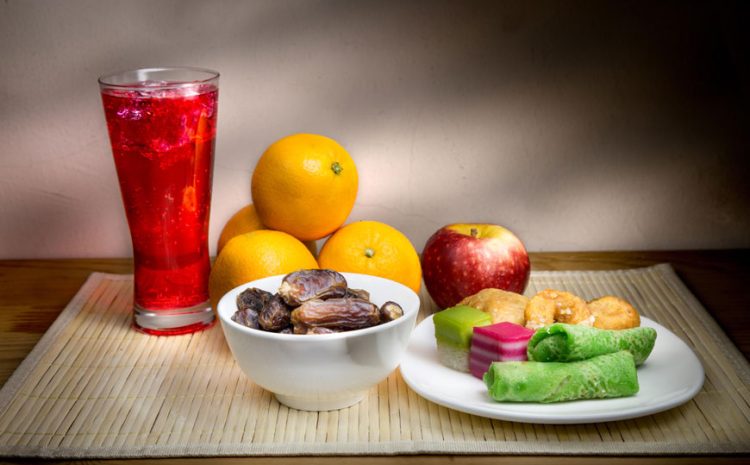
A Quick Guide to Eating Right during Ramadan
When done properly, the fasting month of Ramadan can have great impact on the body. Here is a quick guide to get the most out of the month. May this season add bounty and revive your body and spirit.
1. Break your fast with dates
Dates are a great source of sugar immediately compensating the energy required for the body. It is rich in minerals such as potassium and magnesium and contains a lot of fibre.
2. Keep yourself hydrated
With the summer temperatures going beyond 45 degrees, it is paramount that you replenish the body’s water requirement after the fasting period. Make sure that you are drinking at least eight glasses of water.
3. Avoid dehydrating foods
Foods with salts such as salted nuts and processed foods only increase the body’s loss of water. This, in turn, induces thirst. To break this, consume fruits and vegetables that will prevent you from getting thirsty.
4. Eat all food groups
Make sure that your iftar meal has all important food groups. Additionally, you should break your fast slowly. Dates are the best to break your fast. This can be followed by some water, soup, some salad, and then the main meal. Grains, vegetables, proteins, healthy oils, and fruits are quite essential in helping your body stay healthy during the next day’s fasting. You can also consume whole grains, lean meat, fish, olive oil, and dairy products.
5. Avoid caffeine
As with salty foods, coffee is known to cause dehydration. Additionally, it is a good idea to train yourself to reduce your coffee intake. Caffeine withdrawal can cause sleepiness and headaches and you should give your body enough time to get around.
6. Don’t forget to exercise
Keeping your body agile and active with moderate exercise during Ramadan is very beneficial. A good time to exercise would be two hours after you have broken your fast. But ensure that you are keeping yourself hydrated and replenishing with enough nutrients.




